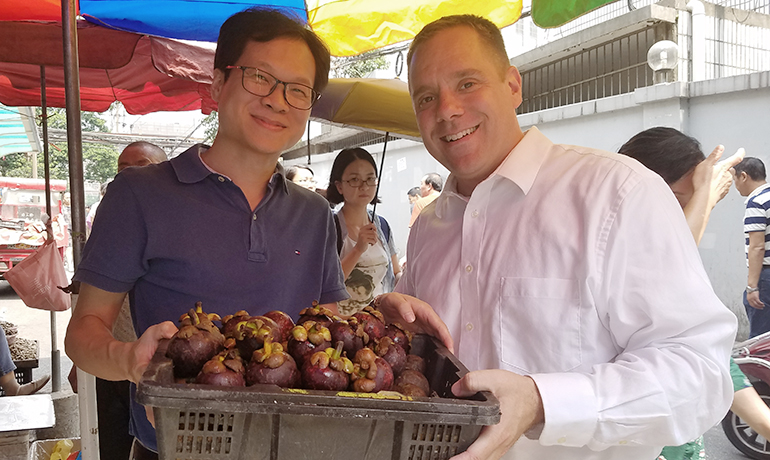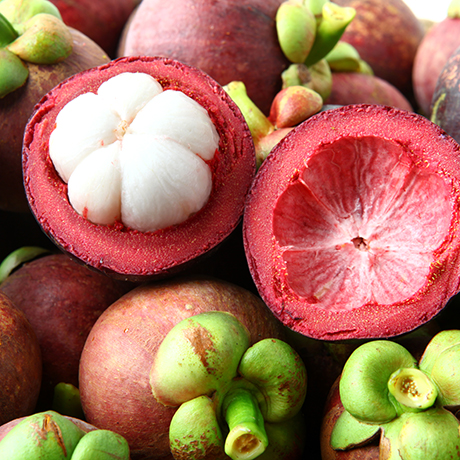
For generations, traditional healers in Southeast Asia have used the mangosteen fruit to treat skin infections, wounds, dysentery and urinary tract infections. Jeremy Johnson has identified phytochemicals in the fruit that can disrupt the function of the androgen receptor, a critical target in prostate cancer.
Johnson, PharmD, PhD, a University of Illinois Cancer Center member and associate professor of pharmacy practice in the UIC College of Pharmacy, has received a $1.7 million MERIT (Method to Extend Research in Time) Award from the National Cancer Institute (NCI) to conduct his latest research. His laboratory is focused on evaluating promising phytochemicals or semi-synthetic derivatives for diseases not only for cancer, but other stomach inflammation maladies.
“Mangosteen contains unique xanthones to promote androgen receptor degradation,” Johnson said. “This mechanism has not been identified with any other compounds for prostate cancer. More importantly, this approach helps deal with the very serious and common problem of drug resistance with FDA-approved drugs for prostate cancer.”

Round with a deep purple exocarp that surrounds the white pulp fruit, the mangosteen is readily available in countries that cultivate it, including Thailand and other Southeast Asian and Pacific Rim countries. A long history and folklore surrounds the mangosteen, also referred to as the “Queen’s fruit”, for its unique flavor and medicinal benefits. Queen Victoria, who lived from 1819 to 1901, is said to have provided an award of 100 pounds sterling to anyone who could bring mangosteen back to England.
Many in the United States may not be familiar with the mangosteen fruit, Johnson said. It was not approved for import into the country until 2007 due to concerns of an Asian fruit fly. The tree on which it grows also requires a specific climate only found in the continental U.S. at the very southern tip of Florida. However, “if you look in the right places you may be able to find the mangosteen fruit in your local Asian grocery store or in Chinatown in March or October after it is harvested and imported from Southeast Asia,” Johnson said.
The NCI’s R37 MERIT Award is unique in that researchers may not apply for it. After submitting an R01 application, the NCI’s National Cancer Advisory Board converted Johnson’s request to R37, which is guaranteed for five years and can be extended for an additional two years of funding. The MERIT Award provides awardees the opportunity for greater flexibility, creativity and innovation in their research, as well as additional time to submit renewal applications.
Along with his funded research on mangosteen, Johnson and his laboratory are studying Mediterranean herbs – including rosemary – for inflammatory bowel disease and colitis. Johnson’s research in inflammatory bowel disease is supported by a multi-year grant from the U.S. Department of Agriculture.
Co-Principal Investigators on the grant are UI Cancer Center member Maarten Bosland, DVSc, PhD, UIC pathology professor and member of UIC’s Center for Global Health, and Chun-Tao Che, PhD, Harry H.S. Fong Professor of Pharmacognosy.
